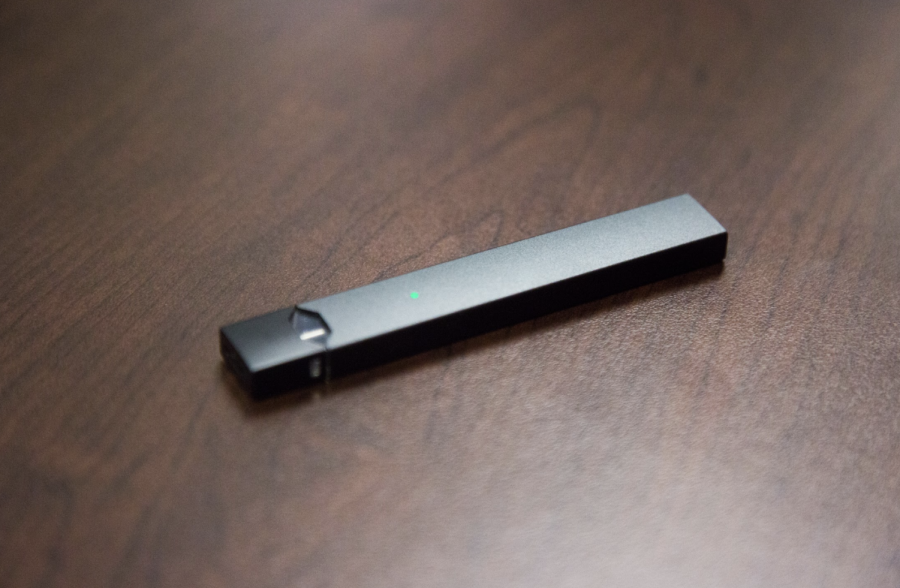For several decades, Americans have worked hard to reduce the presence of cigarettes only to see them replaced by something which could be far more dangerous. As of Sept. 30, 2019, 15 Americans have died from vaping-related activity in addition to 800 cases of lung disease. Emerging over a decade ago, the e-cigarette industry is worth over $2.6 billion today with at least 20,000 vape shops and 10.8 million users across the country.
Researchers say the current efforts of schools and governing agencies to control the fad have “proved insufficient to stop the rapid spread of nicotine vaping among adolescents.” The stats are telling. In the past two years, the use of vapes has nearly doubled for high schoolers and college students. According to the survey, one in four high school seniors reported having vaped in the past month, but the even more alarming statistic was that 12 percent say they vaped in at least 20 of the past 30 days. This dangerous trend needs more attention immediately, whether it be at the collegiate or federal level.
However, the problem with creating a school rule or federal law against it is that there is little conclusive evidence of e-cigarettes directly causing health problems, and most patients with illnesses also report having used THC, the high-inducing chemical in marijuana, related vaping products. This makes it difficult for researchers to diagnose the issue and determine how we can reduce e-cigarette usage. This in turn makes it difficult to establish research-based rules against vaping. The best solution moving forward is research. If we better understand the health concerns of electronic cigarettes, we can correctly advertise the dangers and curb the epidemic similarly to how cigarettes were targeted.
Our grandparents didn’t know the dangers of smoking cigarettes while they smoked them, leading to widespread health conditions. This inspired our parents to constantly lecture us on the dangers of cigarettes, but little did they know, there’s an alternative that’s just as dangerous.
That’s the genius of vaping. It plays off what our parents have told us our entire lives: not to smoke cigarettes.
It gives people a relaxing feeling without the stigma of tobacco, and even comes in a variety of delightful flavors. Meanwhile, it is still unclear why people are rapidly becoming ill and even passing away as a result of these devices. Not to mention, a single pod contains as much nicotine as a pack of cigarettes making people far more likely to start using tobacco.
In response, certain colleges have taken steps to reduce vaping on campus. Chancellor John Sharp at Texas A&M banned all vaping on “every inch” of their campus. While this could be an effective policy for our campus, it may not be the most effective way to counter student use of vaping devices. “Banning flavored vaping devices would be counterproductive. It would only allow for new black markets to open up” and “people could get around something like that by vaping in private areas,” first-year Noah Abrams said.
Another possible solution would be executive action from the federal government, which this administration has weighed in on. “We can’t allow people to get sick. And we can’t have our kids be so affected” President Trump said. Alex Azaar II, Trump’s Secretary of Health and Human services, says the Food and Drug Administration plans to ban all non-tobacco flavored e-cigarettes and nicotine pods, including mint and menthol, the two most popular flavors. However, as noted by students like first-year Luke Kobrin, banning the products may encourage the use of unregulated devices. “Banning flavored e-cigs and related products won’t serve to curb the epidemic but will only encourage the use of unregulated products which are the present cause of vaping-related illnesses and complications” Kobrin said.
Hence, the best remedy at this time is research. We need to understand exactly what teens are putting into their bodies and what are side-effects. “Similar to the anti-tobacco movement that occurred in the 1900s, the key should be educating the people as to the effects while also doing more research into what it truly does to the body,” Abrams said. This is the approach we should be taking, rather than simply banning a product as if it were alcohol during Prohibition.
People can and will get around the law, but if they the public is aware of what they are doing to themselves, we have a better chance at stopping this before Juuls become the next Marlboros.
Ending drug addiction has never been easy. But this is a serious problem our campus and country face that needs to be dealt with before one of our own friends is hurt or even killed as a result. Unfortunately, the research is not there. We need to better understand the products our generation is consuming in order to properly combat the epidemic. But, what we do know is that enough is enough, it’s time to put down the Juul.













